A Dangerous Destination in Mexico
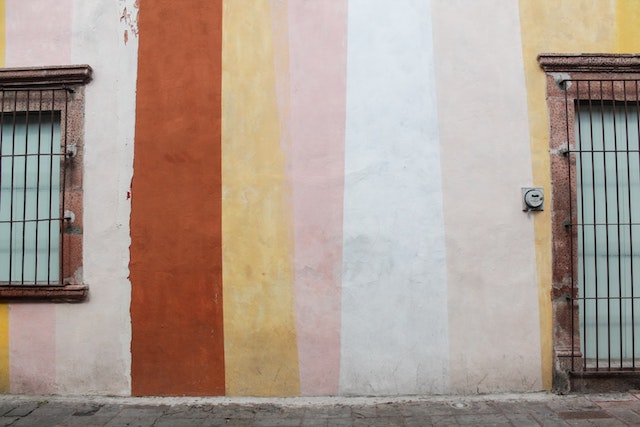
The first thing I saw as I deplaned in the Monterrey International Airport was a member of the Mexican militia holding a machine gun. As a clearly solitary and very blonde young woman in Mexico, I instinctively lowered my gaze to the tiled floor as I passed. That night, I tried to fall asleep in a second-story room off a breezeway, hearing revved engines and squealing tires from blocks away, political ads blasting through megaphones and militia-laden vehicles rolling by from time to time, and I thought over and over: What have I gotten myself into?
Rewind. It’s six months earlier, and my mother is asking me if I have any Spanish books to donate.
“Anything from your college courses that you don’t want anymore?” she asked. “A woman at church is shipping a collection to a school in Mexico. A friend of hers is trying to start a library there.”
I gathered some books and placed them in a small stack in the kitchen.
What have I gotten myself into?
“They’re missionaries, and they take interns!” This was a classic Mom move—start the conversation innocently enough and then attack with a quick jab to remind me about my job search. She did it out of love, of course.
I had already been carefully avoiding the application she shoved under my nose to intern with my home church in Central Illinois. At the mention of an internship opportunity abroad, however, I perked up.
“Interns for what?” I asked.
Fast-forward a few months.
For weeks, I had been in contact with Gena, one of the missionaries. In the town of El Carmen near the Mexican metropolis of Monterrey, the construction of a school library was nearing completion, and donated books were flowing to the missionaries’ doorstep—leaving them in need of some spiritually-oriented, organizational, bilingual, literary help to make that library functional for the students. I happen to fill that niche 100 percent.
While my mom was expectedly thrilled when I reached out to the missionary couple, I was surprised that my father wasn’t arguing against me traveling alone to a foreign country.
“Just be smart,” was his tagline, “And be careful.” Mostly, he wanted to make sure I could afford it.
So, in order to finance the internship, I applied for grants through my college and through my church, and I was lucky enough to secure enough aide to cover my entire trip. My proposal for a servant leader internship grant was approved by my college’s vocational center. Combined with a funding contribution from the mission’s team of my home church, I was completely funded!
I cried. I called my parents, heartbroken, certain that I would be unable to go. I was ready for my dad to pull the plug, using the lack of money and the travel warning to keep me on U.S. soil where I could get a summer job and stockpile my savings.
I have no better comparison for that excitement than the feeling of a plane taking its own weight as the wheels leave the earth. Suddenly, all at once, you’re suspended in the thinning air, aware of how heavy you are but rising steadily—and there’s no going back.
Upon being notified of these resources, I purchased the plane tickets.
Then, on the day before my flight, my grant funding was nulled in the college’s final approval phase. My internship couldn’t even be officially recognized through the college, let alone sponsored or funded. It was too dangerous to visit that area, and the institution simply couldn’t be responsible for taking on the risks of me traveling there. It had to distance itself.
I cried. I called my parents, heartbroken, certain that I would be unable to go. I was ready for my dad to pull the plug, using the lack of money and the travel warning to keep me on U.S. soil where I could get a summer job and stockpile my savings. I had all but given up the idea when my father picked up the phone.
“Now, hold on,” he said. “You’ve already bought your plane ticket with the grant money from the church, and you have some cash in savings. How important is this to you?”
I hadn’t realized until that moment exactly how very important it was to me. For the first time in a long time, I felt like I had a purpose. I didn’t like using language like this, but I truly felt called. I wasn’t about to miss the opportunity to use so many of my unique gifts working toward a “greater good.” And, my soul ached for the adventure.
So I went to Mexico in the early summer of 2012, following one of the most violent years for the Monterrey area. Drug cartels had been terrorizing the city and its outlying towns, like Hidalgo. Corruption was rampant in the ranks of the policía, kidnappings were common and crime was everywhere, leaving the once-thriving region in an economic tailspin.

In a place like that, relationships were what mattered most.
I didn’t know any of this when I decided to board my plane despite the grant loss. By the time I arrived, the federal militia had replaced the police force in Hidalgo. They rode around the town at all hours in open-top military vehicles, wearing full combat uniform, holding their rifles. I experienced and learned so much in my few weeks there, but one of the most surprising to me was this: living in a police state comforted me as opposed to scaring me, something I never would have believed before experiencing it for myself.
Despite the initial—and purposeful—intimidation at the airport’s customs, I only encountered the militia once. Gena, the missionary I had been in touch with, and her husband, Andrew, were traveling with their baby and me in the backseat, driving south on the highway toward Monterrey after a brief weekend in San Antonio, Texas, with a much-needed desk from Craigslist strapped to the roof. The office furniture and North Carolina plates must have called the attention of some militia on patrol.
A Dangerous Destination: I Went Anyway
They pulled us over, walking up to the Honda CR-V with their uniforms and weapons, clearly suspicious of an American couple with their baby and me in the backseat.
“Don’t say anything. Let me talk,” Andrew instructed as the window was rolled down.
The militiaman drilled Andrew in Spanish, asking who we were, what we were doing, where we were going and why we had a desk on top of our vehicle. When they heard we were missionaries in the Hidalgo area, they relaxed slightly.
“Hidalgo,” the man said thoughtfully. “The town is now under control of the militia, yes? And how are we doing?” The question was loaded like his gun.
“Muy bien. Bien trabajo.” Great job. We all nodded enthusiastically. The man smiled wide and stepped away from the car.
“Safe travels,” he said. I breathed again.
Despite the region’s scars and scares, I felt at ease while I was there. For part of the time, I stayed by myself in a room connected to the missionaries’ coffee shop by a breezeway, having the hot summer nights to myself to sort through and label books to shelve the next day, entering their titles, authors, genres and label numbers into a spreadsheet.
I never felt like I was in a place that was struggling. Rather, it felt like a place that was growing.
By day, we’d make the short trip to El Carmen to work on-site at the library. There were other missionaries and volunteers, some from the United States, some from other parts of Mexico, one from Canada. It was easy to make friends. The kids were excited to have the library, and I recognized some of them from church or the coffee shop, where they would come hang out from time to time. They were surprised and delighted when I was able to speak to them in Spanish.
We talked about my hard-to-place accent and Spanish slang and school and birthday parties—never kidnappings or shootings or poverty. I never felt like I was in a place that was struggling. Rather, it felt like a place that was growing. There was a constant swelling of spirit that I wasn’t used to.
Even without physical resources, the community was abundant in spiritual ones.
Even those in poverty held an unbeatable capacity for joy and for gratitude. In Mission—a community barely larger than a neighborhood—one-room houses for entire families were made from concrete pieces with rugs covering the doorways. Yet, we had a large gathering at the tin-roof, open-air church there on Sundays, where they sang and danced and prayed over each other for hours. Complete strangers prayed over me, and I cried from the strength of emotion every time.
You could feel the resilience in the school, in the church, in the neighborhoods—everywhere. The people I met weren’t giving in to a shadowed life. I realized that that is what a life in faith feels like—inescapably baptized in hope. Nothing transpired that wasn’t seen as an event for the glory of God. Even without physical resources, the community was abundant in spiritual ones.
Only when we were among ourselves, some of the missionaries that had settled permanently in the area confirmed things I’d heard before I left the States: American citizens hanging from overpasses, drug lords forcing a militia takeover of small towns, threats and shootings and close calls. But mostly, we talked about our relationship with God and our relationships with others. In a place like that, relationships were what mattered most.
I understand why my college couldn’t finalize the grant. But, I will always remember that my educational institution couldn’t bear the burden of sending help where it was needed most. It was my church that walked beside me for the sake of a community at risk, and it was that amazing community that taught me what risk, hope and strength of spirit really look like.


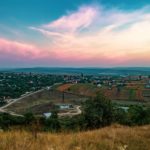
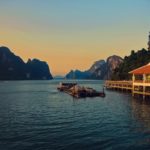
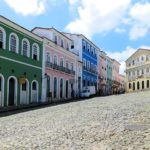
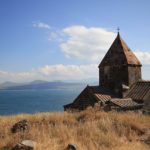

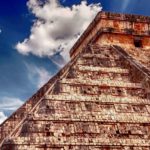

One thought on “A Dangerous Destination in Mexico”